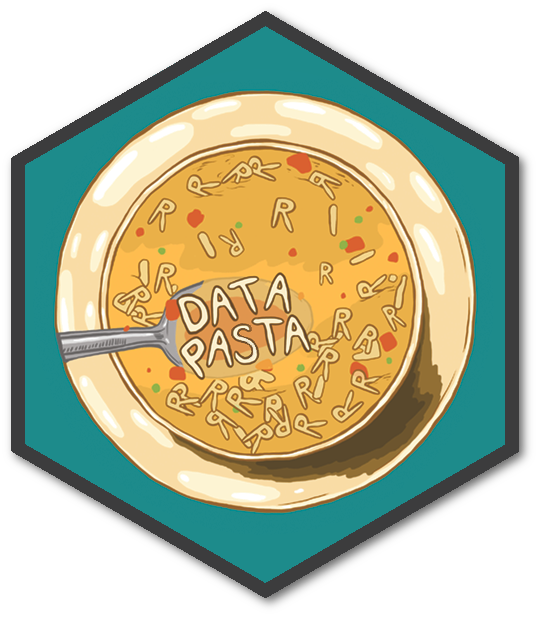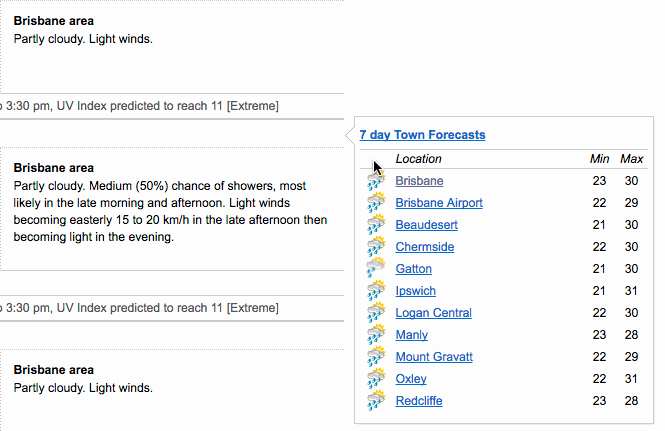

datapasta is about reducing resistance associated with
copying and pasting data to and from R. It is a response to the
realisation that I often found myself using intermediate programs like
Sublime to munge text into suitable formats. Addins and functions in
datapasta support a wide variety of input and output
situations, so it (probably) “just works”. Hopefully tools in this
package will remove such intermediate steps and associated frustrations
from our data slinging workflows.
xsel or
xclip. These applications provide an interface to X
selections (clipboard-like).
sudo apt-get install xsel - it’s
72kb…install.packages("datapasta")At the moment this package contains these RStudio addins that paste data to the cursor:
tribble_paste which pastes a table as a nicely
formatted call to tibble::tribble()
vector_paste which will paste delimited data as a
vector definition, e.g. c("a", "b") etc.
vector_paste_vertical which will paste delimited data
as a vertically formatted vector definition.
c("Mint",
"Fedora",
"Debian",
"Ubuntu",
"OpenSUSE")df_paste which pastes a table on the clipboard as a
standard data.frame definition rather than a
tribble call. This has certain advantages in the context of
reproducible examples and educational posts. Many thanks to Jonathan Carroll for getting
this rolling and coding the bulk of the feature.
dt_paste which is the same as df_paste,
but for data.table.There are two Addins that can help with creating and aligning data in your editor:
Fiddle Selection will perform magic on a selection. It
can be used to:
c() expressionc() expr between horizontal and vertical
layout.tribble() and data.frame()
exprs.Toggle Vector Quotes will toggle a c()
expr between all elements wrapped in "" and all bare
unquoted form. Handy in combination with above to save mucho keystrokes.
There are two R functions available that accept R objects and output formatted text for pasting to a reprex or other application:
dpasta accepts tibbles, data.frames, and vectors.
Data is output in a format that matches in input class. Formatted text
is pasted at the cursor.
dmdclip accepts the same inputs as
dpasta but inserts the formatted text onto the clipboard,
preceded by 4 spaces so that is can be as pasted as a preformatted block
to Github, Stackoverflow etc.
The only hard dependency of datapasta is
readr for type guessing. All the above *paste
functions can be called directly instead of as an addin, and will fall
back to console output if the rstudioapi is not
available.
On system without access to the clipboard (or without
clipr installed) datapasta can still be used
to output R objects from an R session. dpasta is probably
the only function you care about in this scenario.
datapasta imports clipr and
rstudioapi so as to make installation smooth and easy for
most users. If you wish to avoid installing an rstudioapi
you will never use you can use:
install.packages("datapasta", dependencies = "Depends").install.packages("clipr") to enable
clipboard features.tribble_paste works well with CSVs, excel files, and
html tables, but is currently brittle with respect to irregular table
structures like merged cells or multi-line column headings. For some
reason Wikipedia seems chock full of these. :(tribble_paste()/dpasta(). Nested lists of
length 1 fail unless all are length 1 - It’s complicated. You still get
some output so it might be viable to fix and reflow with
Fiddle Selection. Tread with caution.This package is made possible by mdlincon’s clipr, and
Hadley’s packages tibble
and readr (for data-type
guessing). I especially appreciate clipr's thoughtful
approach to the clipboard on Linux, which pretty much every other R
clipboard package just nope’d out on.
I am interested in expanding the types of objects supported by the
output functions dpasta. I would also like to eventually
have Fiddle Selection to pivot function calls and named
vectors. Feel free to contribute your ideas to the open issues.
0 to datapasta in 64 seconds via a video vignette: